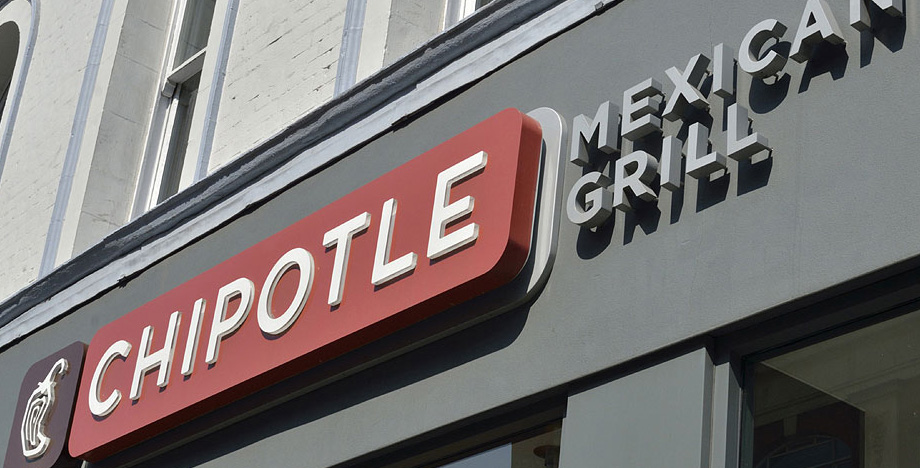
Chipotle said it has been subpoenaed as part of a federal criminal investigation and that sales plummeted 30 percent in December after a series of food scares at its restaurants.
The company said in a regulatory filing it was asked to produce a broad range of documents tied to a norovirus outbreak this summer at its restaurant in Simi Valley, California, but declined to provide further details.
It said the investigation does not involve a more recent E. coli outbreak tied to its restaurants or a separate norovirus outbreak in Boston.
The investigation is being conducted by the U.S. Attorney’s Office for the Central District of California with the Food and Drug Administration’s Office of Criminal Investigations, according to a filing with the Securities and Exchange Commission Wednesday.
Representatives for the U.S. Attorney’s office and the FDA declined to comment.
The disclosure of the investigation comes as Chipotle Mexican Grill Inc. reels from E. coli outbreaks in late October and November, which were followed by the sickening of customers at a restaurant in Boston in early December. Those cases received far more national media attention than the California incident, and the company’s sales have since plunged.
Sales fell 14.6 percent in the fourth quarter, marking the first decline for the Denver company since it went public in 2006.
Last month, Chipotle also said it could no longer reasonably predict sales trends given the food scares and retracted its forecast for 2016.
In its regulatory filing Wednesday, the company said it could not determine or predict the amount of any “fines, penalties or further liabilities” it might face in connection with the federal investigation.
A Chipotle spokesman, Chris Arnold, said the company intends to cooperate fully with the investigation.
Doug Beach, a manager of the food program at Ventura County’s Environmental Health Division, said the FDA approached the county about its local investigation in September or October, then followed up with a phone call with the U.S. Attorney’s office in October or November.
Beach said the U.S. Attorney’s office then requested the county’s records on the Chipotle case.
“That was a first for us,” Beach said in a phone interview.
Beach also noted that Chipotle had not contacted the county about the illnesses until Saturday Aug. 21, after it had shut down the restaurant in Simi Valley for sanitation and reopened it. Beach said he believed the company was aware of sick employees the previous Tuesday.
According to a county inspection report, the area manager for Chipotle said the company got its first customer complaint about an illness on Aug. 20.
The emergence of a criminal investigation after a norovirus outbreak is unusual, said Bill Marler, a food safety lawyer representing Chipotle customers who were sickened in Simi Valley.
Marler said he didn’t understand why the U.S. Attorney’s office would have jurisdiction over an outbreak that was caused by a sick worker at a single restaurant. He noted that the FDA would normally not get involved in such cases.
“I’m scratching my head about it,” he said.
Stuart Pape, an attorney at Polsinelli who specializes in food regulatory matters, noted Chipotle is under heightened scrutiny as a result of its string of food scares.
“They’ve got the FDA all over them, they’ve got the CDC all over them, and now they’ve got the Justice Department all over them,” Pape said.
To rehabilitate its image, Chipotle has taken out full-page ads apologizing to customers in dozens of newspapers around the country. It also vowed changes to step up food safety at its restaurants, in part by tweaking its cooking methods and increasing testing of meat and produce.


